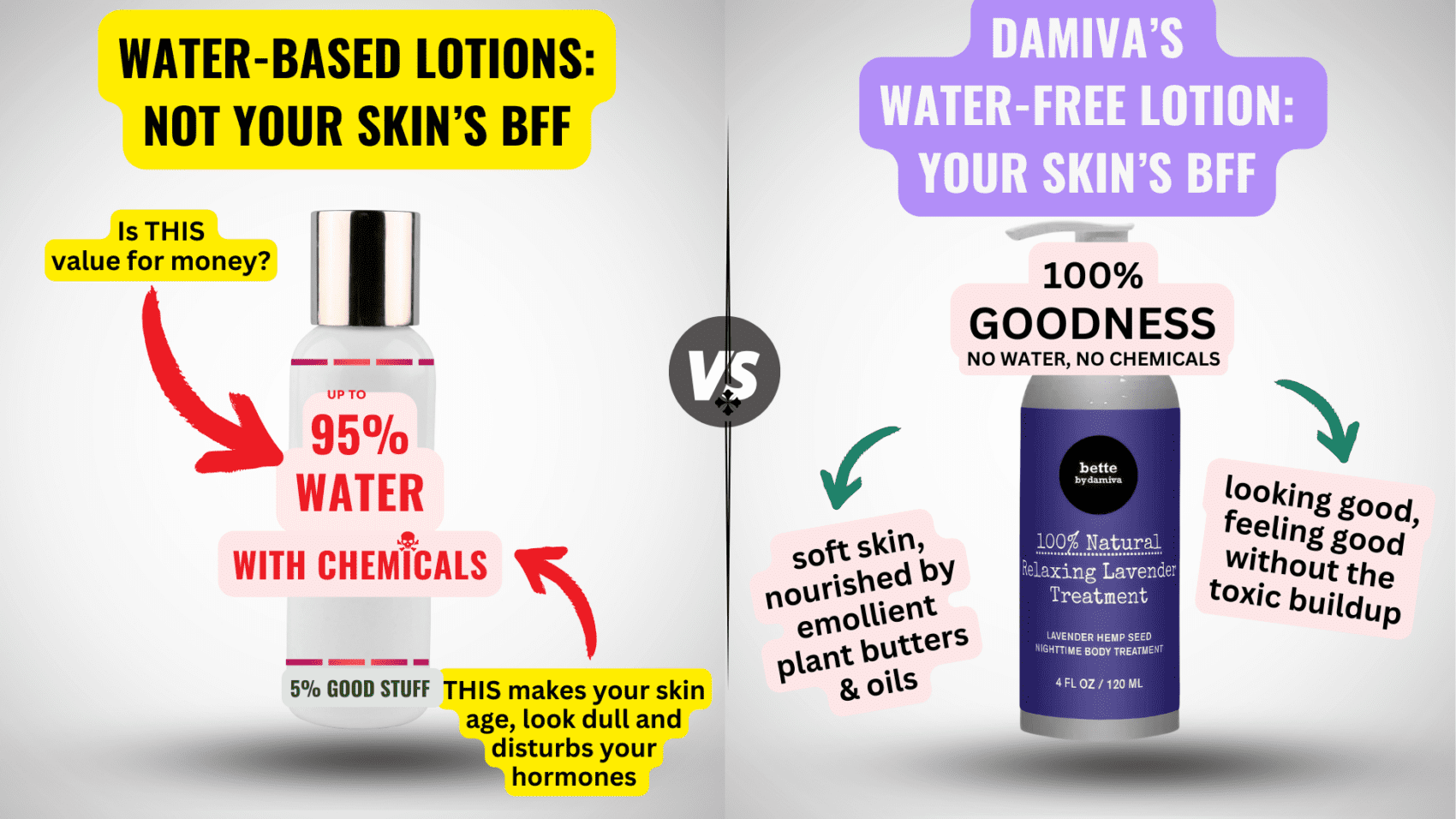Vitamin D and Its Unique Role
Vitamin D, often hailed as the “sunshine vitamin,” is a nutrient that stands out due to its unique formation and multifaceted roles in the human body. Unlike other vitamins, vitamin D functions like a hormone, and every single cell in the body has a receptor for it. It is synthesized in the skin upon exposure to sunlight, specifically ultraviolet B (UVB) rays, and can also be obtained through certain foods and supplements. Its classical role is to maintain optimal levels of calcium and phosphorus in the blood, which is crucial for bone formation, maintenance, and overall skeletal health. However, vitamin D’s influence extends far beyond bone health, impacting immune function, cell growth, and neuromuscular coordination.
Vitamin D’s Relationship with Sex Hormones
Vitamin D’s significance in the realm of sexual health is profound. It is intricately linked to the production of sex hormones, such as testosterone and estrogen. These hormones not only govern libido but also influence mood and emotional well-being. Studies have indicated that optimal levels of vitamin D correlate with balanced testosterone and estrogen levels, which can enhance sexual health and mood stability. Conversely, a deficiency in vitamin D can lead to lower estrogen levels in women, resulting in a diminished sex drive, and similarly, lower testosterone levels in men.
Seasonal Variations in Libido and Mood
The relationship between vitamin D and sexual health may also explain seasonal variations in libido and mood. During summer months, when sun exposure is typically higher, vitamin D synthesis increases, potentially leading to heightened sexual desire and improved mood. This phenomenon could also shed light on the occurrence of Seasonal Affective Disorder (SAD), where individuals experience mood changes during the darker winter months, possibly due to decreased vitamin D levels.
Prevalence of Vitamin D Deficiency
Despite its importance, vitamin D deficiency is widespread, with an estimated 77 percent of Americans not receiving adequate levels. Modern lifestyles that involve spending significant time indoors, wearing clothes that cover most of the skin, and using sunscreen to block UV rays all contribute to reduced vitamin D synthesis. This deficiency is a global health issue, as it not only affects bone health but is also an independent risk factor for total mortality in the general population. Addressing this deficiency is crucial, as it has been linked to a host of health issues, including cancer, heart disease, diabetes, and depression.
Vitamin D and Sexual Health
Impact on Testosterone and Estrogen Levels
Vitamin D, often hailed as the “sunshine vitamin,” plays a pivotal role in the regulation of sex hormones, particularly testosterone and estrogen. Studies have indicated that men with sufficient levels of vitamin D have significantly higher testosterone than those with lower levels. This is not just a trivial increase; the difference in testosterone levels can have profound effects on libido, mood, and overall well-being. Similarly, vitamin D deficiency in women can lead to lower estrogen levels, which may result in a decreased sex drive. The interplay between vitamin D and these hormones underscores the importance of maintaining adequate vitamin D levels for sexual health and hormonal balance.
Correlation Between Vitamin D and Libido
The connection between vitamin D and libido is more than just skin deep. Seasonal variations in sunlight exposure—and consequently vitamin D synthesis—have been observed to correlate with fluctuations in sexual desire. Many people report feeling more sexually active during the summer months, which coincides with higher levels of vitamin D due to increased sun exposure. This seasonal trend suggests that vitamin D may influence libido, potentially through its effects on sex hormones and mood-regulating neurotransmitters like serotonin and dopamine.
Effects on Fertility and Reproductive Health
When it comes to fertility and reproductive health, vitamin D reveals its sexier side. Research has shown that vitamin D supplementation is associated with better sperm quality and motility in men, which is crucial for conception. In women, higher vitamin D levels have been linked to higher clinical pregnancy rates, suggesting a significant role for vitamin D in supporting healthy fertility. Moreover, vitamin D’s influence on estrogen also plays a part in maintaining a healthy uterine lining, which is essential for successful implantation and pregnancy. Thus, optimal vitamin D levels are not only beneficial for sexual desire and function but are also critical for reproductive success.
In conclusion, vitamin D’s impact on sexual health is multifaceted, influencing hormone levels, libido, and fertility. Ensuring adequate vitamin D intake through sun exposure, diet, or supplementation could be a key factor in enhancing sexual well-being and reproductive health.
Vitamin D’s Influence on Mood and Mental Health
Role in Serotonin and Dopamine Regulation
Vitamin D has been recognized for its role in the synthesis of serotonin and dopamine, two neurotransmitters that are pivotal in regulating mood and behavior. Serotonin is often referred to as the “feel-good” neurotransmitter, contributing to feelings of happiness and well-being, while dopamine is associated with the reward system in the brain, influencing motivation and pleasure. Vitamin D activates the genes that release these neurotransmitters, and deficiencies in vitamin D may lead to decreased production, potentially resulting in mood disorders such as depression.
Understanding Seasonal Affective Disorder (SAD)
Seasonal Affective Disorder (SAD) is a type of depression that occurs at a specific time of year, usually in the winter when daylight hours are shorter. The lack of sunlight during these months can lead to lower levels of vitamin D and subsequently lower levels of serotonin and dopamine. This decrease in neurotransmitters may contribute to the depressive symptoms associated with SAD. The connection between vitamin D, neurotransmitter regulation, and SAD highlights the importance of maintaining adequate vitamin D levels year-round.
Vitamin D Supplementation to Combat Mood Disorders
Given the link between vitamin D and mood regulation, vitamin D supplementation has been explored as a potential treatment for various mood disorders. Studies have shown mixed results, with some indicating that supplementation can improve mood in individuals with low vitamin D levels, while others suggest no significant benefit. It is important to note that while supplementation can be beneficial, particularly during the winter months or for individuals at risk of deficiency, it should not be considered a standalone treatment for mood disorders. A holistic approach, including diet, lifestyle changes, and medical treatment when necessary, is essential for managing mental health.
In conclusion, vitamin D plays a crucial role in mood and mental health through its involvement in neurotransmitter regulation. Adequate levels of vitamin D may help prevent mood disorders and alleviate symptoms of SAD. While supplementation can be a useful strategy to ensure optimal vitamin D intake, it should be part of a comprehensive approach to mental health care.
Optimizing Vitamin D Levels for Health Benefits
Recommended Vitamin D Levels
The importance of maintaining optimal levels of vitamin D cannot be overstated. The Endocrine Society suggests that a serum 25-hydroxyvitamin D [25(OH)D] level above 30 ng/mL is considered sufficient, with 40-60 ng/mL being the preferred range for overall health. However, the Institute of Medicine (IOM) defines vitamin D deficiency as a 25(OH)D level below 20 ng/mL and insufficiency as a level between 21-29 ng/mL. It is crucial to strike a balance, as vitamin D toxicity generally does not occur until levels exceed 150 ng/mL.
Sources of Vitamin D: Sunlight vs. Supplementation
Vitamin D can be synthesized in the skin upon exposure to sunlight, specifically UVB radiation, or ingested through diet and supplements. While sunlight is the most natural source, geographical location, season, and lifestyle factors often necessitate supplementation. Dietary sources include fortified foods and naturally vitamin D-rich foods such as fatty fish and sun-exposed mushrooms. When sunlight exposure is limited, supplementation with vitamin D3, the form most effective at raising blood levels, is recommended.
Conversion and Metabolism of Vitamin D in the Body
Once vitamin D is synthesized by the skin or ingested, it undergoes two hydroxylations in the body for activation. The first occurs in the liver, converting vitamin D to 25(OH)D, the main circulating form. The second takes place primarily in the kidneys, where 25(OH)D is hydroxylated to its active form, 1,25-dihydroxyvitamin D [1,25(OH)2D]. This active form is crucial for calcium absorption and bone health, among other physiological functions.
Guidelines for Vitamin D Supplementation
Supplementation guidelines vary based on individual needs and risk factors for deficiency. The IOM recommends 600 IU/day for individuals aged 1-70 years and 800 IU/day for those over 70. The Endocrine Society suggests higher doses: 600-1000 IU/day for children 1-18 years and 1500-2000 IU/day for adults. Obese individuals, those with malabsorption syndromes, and those on certain medications may require higher doses. It is essential to consult with a healthcare provider before starting supplementation, especially at higher doses, to avoid the risk of toxicity.

From unhappy, dry, and sandpaper to silky, smooth and feeling good. That’s Cleo. Cleo is a 100% natural labial balm to moisture and soothe “your other lips”. Cleo is chemical-free, water-free, pH optimized and helps maintain and restore your delicate labial skin’s natural flora. Ideal for daily use or as needed. Get the most silky, lovable lips ever.
Scientific Evidence and Research Findings
Studies on Vitamin D and Hormone Levels
Research has consistently highlighted the significant role of vitamin D in the regulation of hormone levels within the body. Vitamin D’s influence extends to both testosterone and estrogen levels, which are critical for various bodily functions, including reproductive health. For instance, a study published in the International Journal of Molecular Sciences demonstrated a correlation between vitamin D supplementation and increased testosterone levels in men, suggesting a potential therapeutic role for vitamin D in conditions characterized by low androgen levels.
Research on Vitamin D and Mental Health
The relationship between vitamin D and mental health, particularly mood disorders, has been a subject of increasing interest. Vitamin D receptors are present in the brain, indicating a potential direct effect on mood regulation. Clinical trials have explored the use of vitamin D supplementation as an adjunct therapy for conditions such as Seasonal Affective Disorder (SAD) and depression. Findings suggest that adequate levels of vitamin D may help alleviate symptoms associated with these disorders, although the exact mechanisms remain to be fully elucidated.
Analysis of Seasonal Patterns in Vitamin D Status
Seasonal variations in sunlight exposure can lead to fluctuations in vitamin D levels, which in turn may affect various health outcomes. Studies have observed that lower vitamin D levels during winter months are associated with increased reports of SAD and other mood disturbances. This seasonal pattern underscores the importance of maintaining consistent vitamin D levels throughout the year to support overall well-being. Large-scale epidemiological studies are needed to further understand the impact of seasonal changes on vitamin D status and associated health risks.
In conclusion, the body of scientific evidence supports the multifaceted role of vitamin D in human health, extending beyond its traditional association with bone health. Ongoing research continues to uncover the complex interactions between vitamin D, hormone regulation, mental health, and the influence of environmental factors on vitamin D status.
Challenges and Considerations in Vitamin D Intake
Modern Lifestyle and Vitamin D Absorption
The modern lifestyle poses significant challenges to maintaining adequate levels of vitamin D. With increased time spent indoors, there is less exposure to sunlight, which is essential for the skin to synthesize vitamin D naturally. The prevalence of office jobs and the popularity of indoor leisure activities contribute to this deficiency. Moreover, the widespread use of high SPF sunscreens, while protecting against skin cancer, also inhibits vitamin D production in the skin. The situation is compounded by dietary habits that often lack sufficient vitamin D-rich foods, such as fatty fish, egg yolks, and fortified products.
The Role of Clothing and Sunscreen
Clothing and sunscreen play a dual role in vitamin D synthesis. While they are critical for protecting against harmful UV rays, they also significantly reduce the skin’s ability to produce vitamin D. Sunscreen with an SPF of 30 can decrease vitamin D synthesis by more than 95%. Clothing that covers most of the skin surface, as worn for cultural, religious, or personal reasons, can also limit vitamin D production. This highlights the need for a balanced approach to sun exposure that allows for vitamin D synthesis while minimizing the risk of skin damage.
Geographical and Seasonal Challenges
Geographical location significantly affects vitamin D synthesis. Individuals living at higher latitudes experience reduced UVB exposure, particularly during the winter months, leading to seasonal fluctuations in vitamin D levels. Seasonal variations in sunlight intensity mean that even in sunnier climates, vitamin D synthesis can be inadequate during certain times of the year. Urban environments with high levels of pollution can further reduce UVB availability, exacerbating the risk of deficiency.
In conclusion, modern lifestyle factors, protective measures against UV exposure, and geographical and seasonal variables present significant challenges to maintaining optimal vitamin D levels. It is crucial to recognize these challenges and consider dietary supplementation or food fortification, especially for populations at higher risk of deficiency.

THEN IT CONTAINS TOXIC CHEMICALS. WHY RISK IT GETTING SICK? GO CHEMICAL FREE.
Conclusion: Embracing the ‘Sunshine Vitamin’
Summary of Vitamin D’s Health Benefits
Vitamin D, often hailed as the ‘Sunshine Vitamin’, is essential for a plethora of physiological functions beyond its classic role in calcium metabolism and bone health. It is a critical player in maintaining a healthy immune system, regulating mood, and preventing a wide range of chronic diseases. Vitamin D’s influence extends to the modulation of cell growth, neuromuscular function, and inflammation reduction, making it a cornerstone of overall health and well-being.
Final Recommendations for Optimal Vitamin D Intake
To reap the full spectrum of vitamin D’s benefits, it is recommended that individuals aim for an optimal intake that aligns with their specific needs, lifestyle, and environmental factors. This includes sensible sun exposure, dietary sources rich in vitamin D, and supplementation when necessary. Healthcare providers may suggest a blood test to determine individual vitamin D levels and recommend appropriate supplementation dosages, typically ranging from 600 to 800 IU per day for adults, to maintain serum 25(OH)D concentrations in the optimal range.
Future Directions in Vitamin D Research
As research continues to uncover the extensive impact of vitamin D on human health, future studies are poised to explore its therapeutic potential in greater depth. This includes its role in the prevention and management of autoimmune diseases, its interplay with mental health, and the potential for personalized medicine approaches that tailor vitamin D recommendations based on genetic profiles and individual risk factors. The ongoing quest for knowledge underscores the importance of vitamin D in the medical community and its enduring status as a vital nutrient for health and disease prevention.









